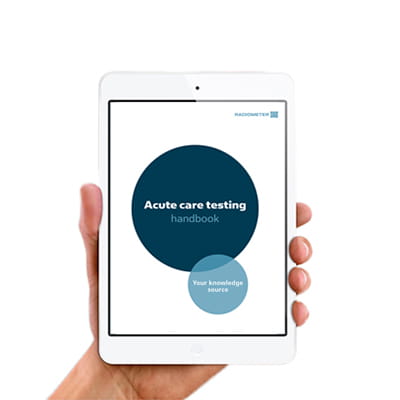Printed from acutecaretesting.org
January 2006
Alcohol hand rubs – safety concerns
Summarized from Lam H, Chan M, Ng P et al. Are your hands clean enough for point-of-care electrolyte analysis? Pathology 2005; 37: 299-04. Roberts H, Self R, Coxon M. An unusual complication of hand hygiene. Anaesthesia 2005; 60: 100-01. Meyer P, Baudel J-L, Maury E et al. A surprising side effect of hand antisepsis. Intensive Care Medicine 2005; 31: 1600.
The introduction of new clinical procedures may have unanticipated adverse effects. The rising incidence of nosocomial infection has highlighted a critical need for effective hand hygiene among healthcare workers. During the past five years there has been increasing acceptance by health authorities of the effectiveness and convenience of the alcohol hand rub as an alternative to water-and-soap hand washing.
Bottles of alcohol hand-wash gel are now ubiquitous in all clinical areas. Three recently published papers highlight two adverse effects of these gels, which were clearly not foreseen when they were first introduced.
From Hong Kong comes a report that the presence of minute amounts of alcohol gel on the gloved hands of healthcare workers contaminated blood samples sufficiently to cause clinically significant erroneous sodium and potassium results when measured by point-of-care electrolyte analyzers.
The paper describes a study which confirms the contaminating effect of alcohol hand gels; it concludes that "hand disinfectant products can significantly interfere with blood electrolyte analysis. Precautions must be taken against contamination since the resultant errors can adversely affect the clinical management of patients".
The second safety concern is highlighted by two very similar case reports, one from a UK hospital and the other from a hospital in Paris. In both instances, hospitalized patients with a history of alcohol abuse took advantage of the ready availability of alcohol in alcoholic hand-wash gel, and drank sufficient gel to render themselves deeply comatose. Both patients required trachea intubation and one required mechanical ventilation.
May contain information that is not supported by performance and intended use claims of Radiometer's products. See also Legal info.
Acute care testing handbook
Get the acute care testing handbook
Your practical guide to critical parameters in acute care testing.
Download nowScientific webinars
Check out the list of webinars
Radiometer and acutecaretesting.org present free educational webinars on topics surrounding acute care testing presented by international experts.
Go to webinars







